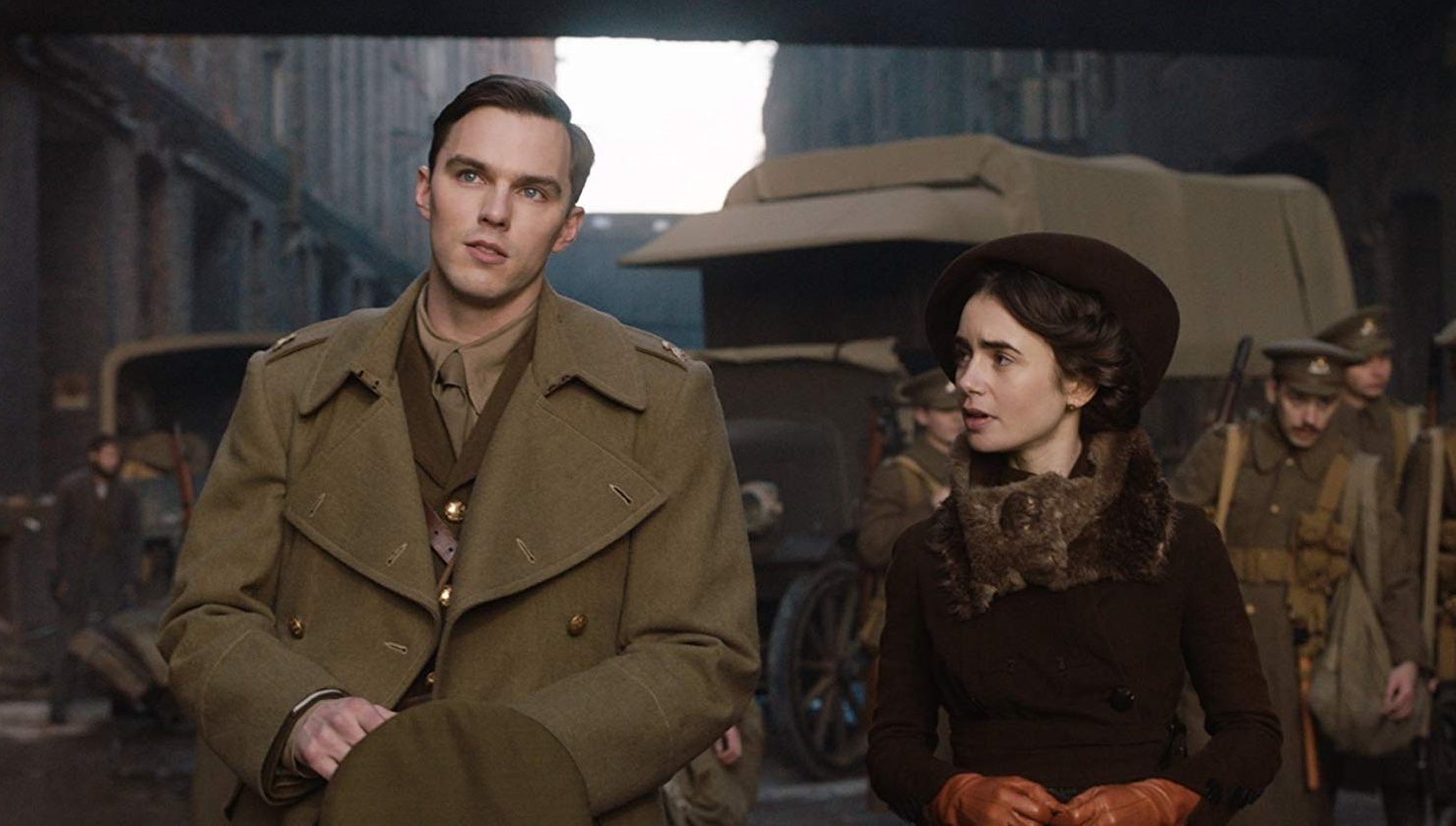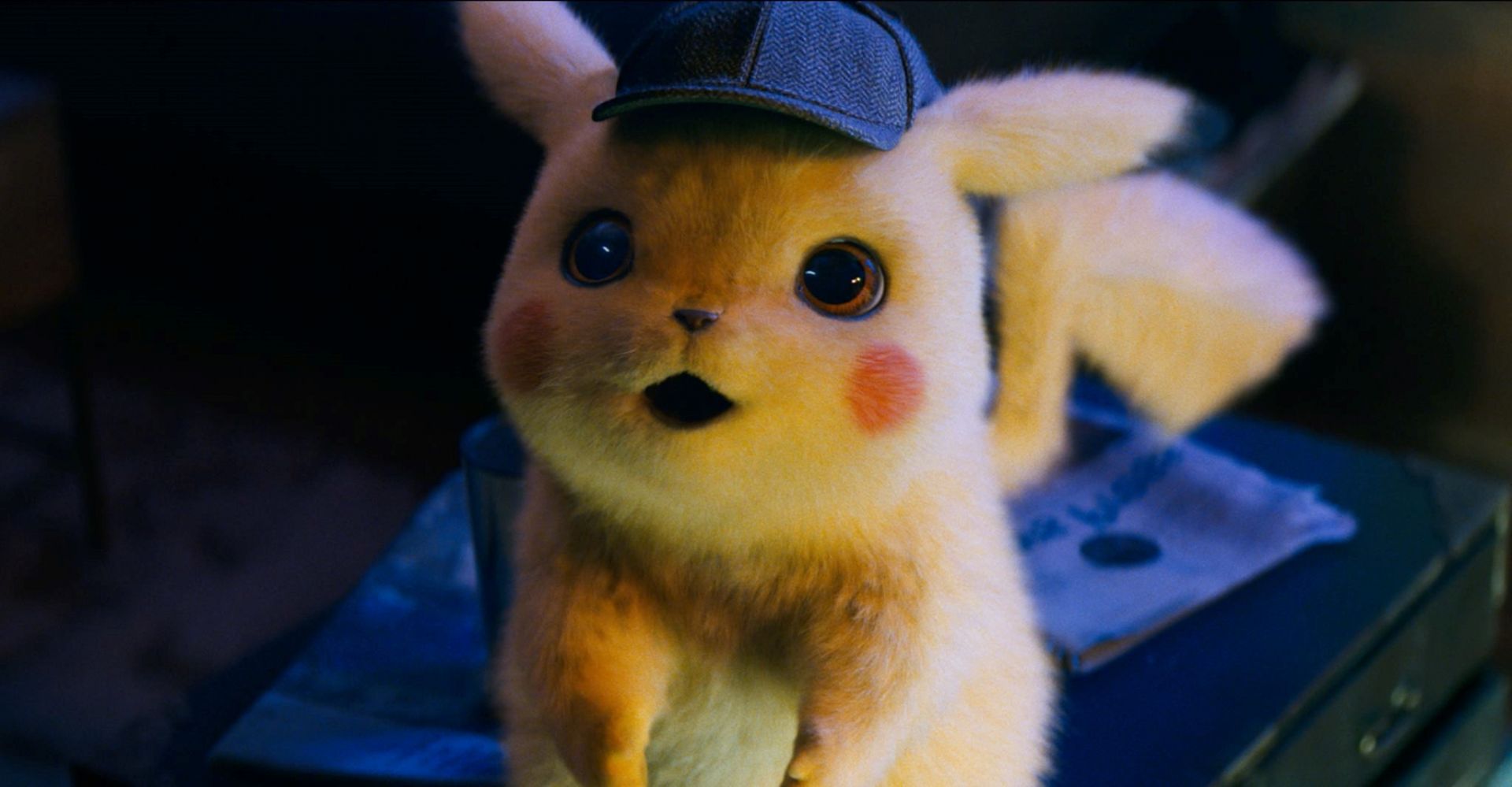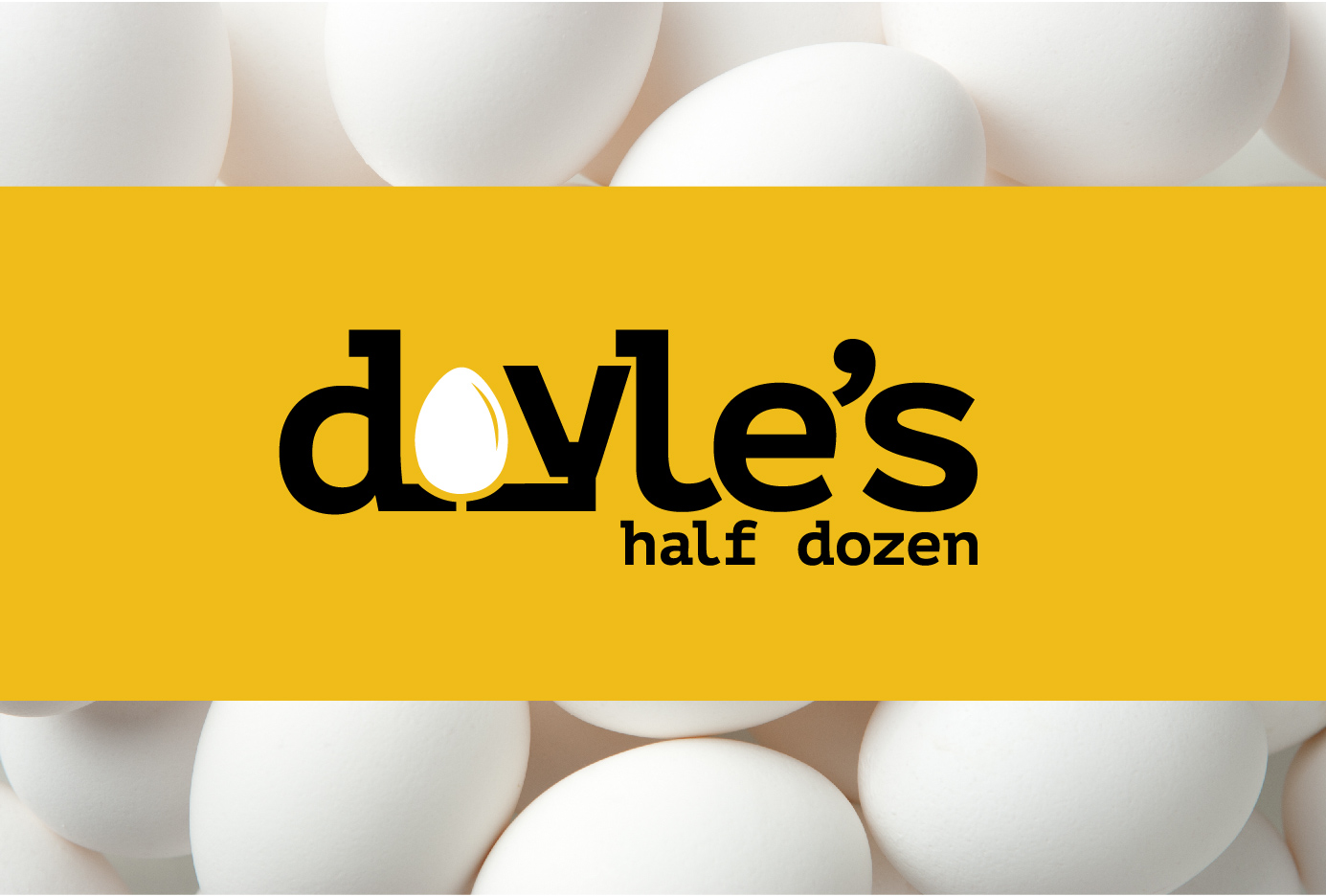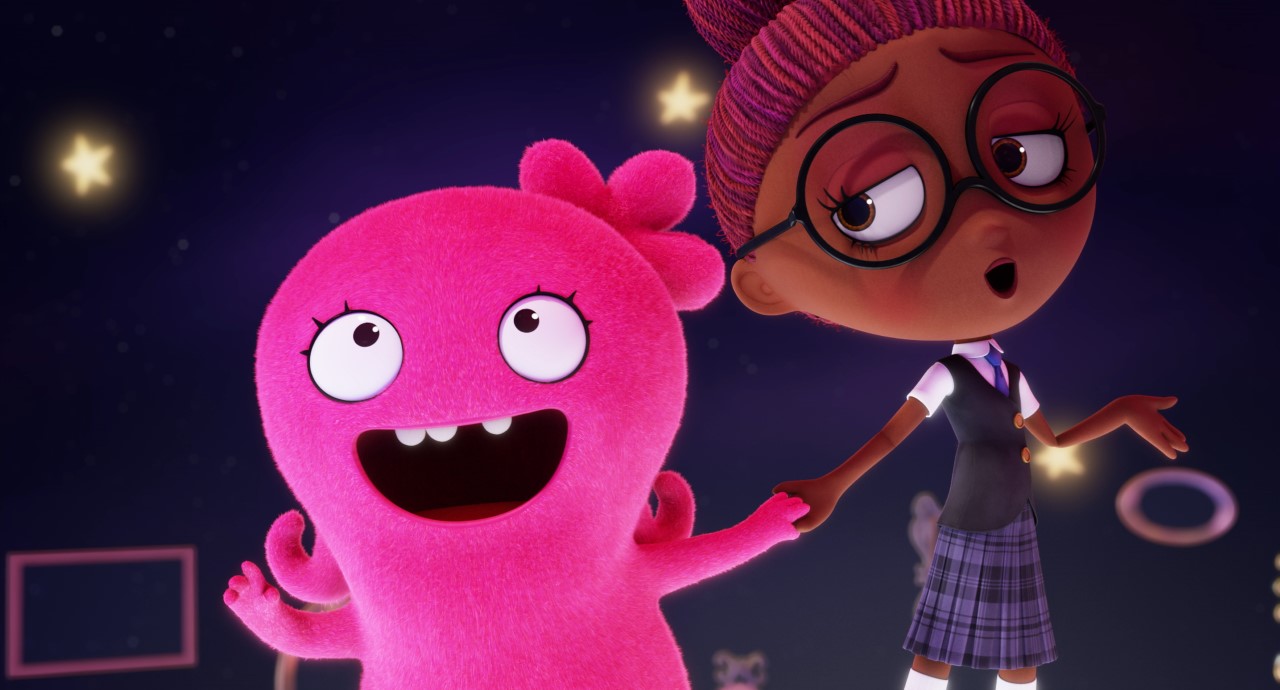
by Michael Foust | May 10, 2019
REVIEW: ‘Tolkien’ has few faith elements but it still can teach us a lot
Ronald is a young British man with a brilliant mind and a
wild imagination.
He dreams about talking trees. He thinks about
fire-breathing dragons. He makes up silly words that belong in an other-worldly
language.
He would be a great novelist, but right now, he’s too busy
chasing a girl named Edith and having fun with his friends Geoffrey,
Christopher and Robert, who attend Oxford College with Ronald and are trying to
find their way in the world. One man wants to be a painter. Another, a poet.
They’ve known each other since boyhood and desire to change the world “through
the power of art.”
“We should form a brotherhood,” one of them says.
Thus, this male foursome swears their allegiance to one
another with the goal of mutual support as they enter college and the real
world.
But then Ronald gets in trouble and loses his scholarship.
And then their country goes to war, forcing them onto the battlefield.
Will they survive bullets and bombs long enough to make an
impact on the world?
The biopic Tolkien
(PG-13) opens this weekend, telling the story of author J.R.R. Tolkien in his
childhood, teenage and young adult years before he penned the classics The Hobbit and The Lord of the Rings. It stars Nicholas Hoult (X-Men: Apocalypse) as Tolkien and Lily
Collins (Les Miserables, 2019) as
Edith, and was directed by Dome Karukoski, a Finnish filmmaker.
The film shows Tolkien and his brother growing up under the
care of their mother, a widow. But then she dies, they are placed in the care
of a Catholic priest, who puts them in a home for orphans. Tolkien becomes a
standout student at a distinguished school for boys and then is accepted into
Oxford.
The movie faced pushback in April from Tolkien’s family, who
released a statement saying they “did not approve of, authorize or participate
in the making of this film.”
“They do not endorse it or its content in any way,” the
statement said.
But Karukoski told me leaving the family out of the
production was intentional. Otherwise, he said, the film may stray away from the
facts and deliver a plot too friendly to the subject.
The movie has little-to-no discussion about God and theology—a
fact that will disappoint some Tolkien enthusiasts—but it nevertheless shows
how he developed some of his basic ideas for The Hobbit and The Lord of
the Rings.
The film’s themes, Karukoski said, are love and friendship.
“There’s only so much time we have left (in life), and we
have to choose what to do with it,” Karukoski told me. “I would hope that
people would spend more time with their friends and inspire each other.”
The film has its enjoyable moments, yet it’s mostly slow and
likely confusing for non-Tolkien fans. If you know nothing about Middle Earth,
then this film likely isn’t for you. Still, it ends on a high note.
Warning:
minor/moderate spoilers!
(Scale key:
none, minimal, moderate, extreme)
Violence/Disturbing
Moderate. The film shows Tolkien in a World War I trench and
then on a battlefield. We see shots fired and men fall, presumably dead. We see
bombs exploded. We see a pile a bodies and a large pool of blood. At school,
Tolkien gets into a fight during a rugby match. Later, he hits a friend who was
berating him.
Sexuality/Sensuality/Nudity
Minimal. Tolkien’s painter friend shows copies of paintings
of nude women to his friends. “What I need is live models. Not much chance of
that, of course.”
Tolkien and Edith kiss, twice.
The film implies that one member of the brotherhood is gay
(The word is never mentioned, and he never acts on his feelings).
Coarse
Language
Minimal. A– (1) and a couple of “for G-d’s sake.”
Other Stuff
You Might Want To Know
Tolkien and his friends drink several times. Once, he gets
drunk and stumbles into an open area at night, shouting at everyone.
Life Lessons
Among the lessons in Tolkien:
the impact of a mother (Tolkien’s mom), overcoming tragedy (Tolkien following
her death), building up one another (Tolkien and the brotherhood) and the bond
between friends (the brotherhood).
Worldview/Application
Tolkien’s mother, Mabel (Laura Donnelly), is on screen only
a few minutes, but her impact on Tolkien is significant. She introduces him to
the love of reading. She sparks his imagination. We see her read books to Tolkien
and his brother at night as a spinning lantern projects images on the walls.
Tolkien’s imagination goes wild. In real life, she died at the age of 34, but
her impact is still reverberating around the world through his works.
It’s true that the film has no “God talk,” but I suspect the
human writers of the New Testament would applaud its portrayal of brotherly
love—at least most of it. Ronald and his friends support one another, no
matters the circumstances. They build up one another. They challenge one
another. They inspire each other. Too often, men put up a facade. They rarely
mirror the brotherly love commanded in Scripture (Rom. 12:10, 2 Pet. 1:7) and
seen in Tolkien.
Still, it’s tragic that the film implies one of Tolkien’s
friends was gay, without evidence. Can’t men have a close bond without the
world imposing its twisted views of sexuality?
What Works
The focus on the bond between Tolkien and his friends. The
ending.
What Doesn’t
The lack of faith content.Yes, the movie’s focus on brotherhood was a wise choice, but some discussion about his Catholic
beliefs would have been nice (And if you’re curious, C.S. Lewis isn’t mentioned
in the film. He and Tolkien met after the events that are portrayed).
Discussion
Questions
1. Why are friendships important for Christian growth? For
living life?
2. How did Tolkien and his friends model biblical
friendship? How did they influence one another?
3. What impact did Tolkien’s mother have on him?
4. What was your reaction to Tolkien’s friend being portrayed
as gay?
Entertainment rating: 2.5 out of 5
stars. Family-friendly rating: 3.5
out of 5 stars.
Rated PG-13 for some sequences of war violence.
Photo credit: Fox Searchlight

by Michael Foust | May 10, 2019
The film Pokémon: Detective Pikachu (PG) opens this weekend. It’s based on the video game and trading card series popular among children.
Tim Goodman is a young, determined man, living in a world
very different from anything you and I have seen.
In Tim’s world, creatures known as Pokémon roam the forests.
They are a cross between a stuffed animal and a toy and sometimes as cute as a
koala bear.
Tim, though, doesn’t have time to chase Pokémon for fun.
He’s on board a train to Ryme City, the only place on the planet where humans
and Pokémon co-exist. In Ryme City, every person has a Pokémon—it’s like a pet—and
Pokémon even perform valuable tasks (like fighting fires).
Tim’s estranged father lived in Ryme City until recently but
died in a tragic car accident. Tim is returning to claim his possessions and
tie up loose ends.
But then his father’s Pokémon—a yellow furry fuzzball named
Pikachu—latches onto Tim. Even crazier, Tim understands every word Pikachu
says.
And then the story grows stranger. Pikachu tells Tim his
father isn’t dead and that he may have been captured by an evil group that’s
trying to destroy Ryme City and the Pokémon, too.
Can Pikachu and Tim find his father and perhaps also stop
this deadly scheme?
The film Pokémon:
Detective Pikachu (PG) opens this weekend, starring Justice Smith (Jurassic World: Fallen Kingdom) as Tim,
Ryan Reynolds (Deadpool, X-Men Origins:
Wolverine) as Pikachu and Kathryn Newton (Three Billboards Outside Ebbing, Missouri) as Lucy, a young woman
who works at a television station and helps Tim break the case.
The film is a mixture of live action and CGI and based on
the video game and trading card series popular among children. Both have
sparked controversy among Christian families for their inclusion of magic and
Eastern spirituality.
In Pokémon Detective
Pikachu, though, we get a worldview not much different than what’s found in
Marvel and Star Wars film. There’s no occult-like magic. Instead, it’s a few
animals with superhero-like powers.
But even if we give Detective
Pikachu a pass on the worldview question, it has content that pushes the
boundaries for a PG film aimed at small children. It has more violence and
disturbing content than what is seen in PG flicks like the Lego Movie or Despicable Me
series. It has more language than what is found in most children’s films, too.
It left me wondering: What is the target audience?
The plot, though, is interesting, and the story has enough
twists and turns to keep moviegoers interested. I—surprisingly—enjoyed it.
But is it OK for children? Let’s take a look.
Warning:
minor/moderate spoilers!
(Scale key:
none, minimal, moderate, extreme)
Violence/Disturbing
Moderate. The film opens with a scene showing a freakish
alien-like creature escaping a laboratory. Seconds later, a car crashes,
apparently killing the occupant. Several friendly Pokémon inhale a gas that
causes them to turn evil and mean. They chase Tim at night in a scene
reminiscent of Gremlins. Tim, in his
investigation, corners a mime and pretends to torture him by pouring gas on him
and lighting a match. We see a Pokémon MMA-type battle between a fire-breathing
dragon and Pikachu. We experience several Jurassic
Park-type jump scenes when Tim and Lucy break into a laboratory. Tim and
Lucy are nearly killed when the mountains and land fold in half in a science
fiction-type scene. A Ryme City parade goes haywire when the Pokémon breathe a
purple gas and turn evil (The gas causes the souls of the humans to enter the
Pokémon).
Sexuality/Sensuality/Nudity
Minimal. Pikachu makes several jokes with double meaning. He
tells Tim as they enter the apartment: “I never do this. I’m not that type of
Pokémon.” He tells Tim to “grow some berries.” Tim says he’s attracted to
Lucy.
Coarse
Language
Minimal. But still too much for a children’s film. OMG (3),
h-ll (2), d–n (1). We also hear an unfinished “holy sh–,” “nipples,” “geez”
and “shove it.”
Other Stuff
You Might Want To Know
Moviegoers will either love Pikachu’s sarcasm or hate it.
We also hear about “Pokémon evolution.”
Life Lessons
Detective
Pikachu delivers
lessons on regret (Tim and his father), parental love (Tim’s father), and
second chances (Tim). We also learn that looks can be deceiving (several
characters who aren’t what they seem).
Worldview/Application
We never learn how the Pokémon get their powers. Apparently,
they’re born that way.
Yet the best message from Detective Pikachu is about family. Tim’s mother died when he was
younger, forcing him to make a choice between living with his grandmother or
father. He chose the former. But when he arrives in Ryme City, he has regret.
He finds an unmailed card from his father with a loving note (“I can do better
if you give me a chance”). The more he learns about his dad, the more he wishes
he could go back in time and make a different decision. And when he learns that
his father may still be alive, he sets out to find his dad—and perhaps get that
second chance in life.
Sponsors
Burger King. Pillsbury. 7-Eleven. Menchie’s Frozen Yogurt.
Delta.
What Works
The fatherhood angle. The chemistry between Tim and Pikachu.
What Doesn’t
The adult-centric double-meaning jokes. The language. It’s a
kid’s movie. Keep it that way.
Discussion
Questions
1. Have you ever wanted a second chance at something?
2. Why did Tim have regret?
3. What unique qualities can a father provide that a mother
or grandmother cannot?
4. What do you think about the debate about Pokémon?
Entertainment rating: 3 out of 5 stars. Family-friendly rating: 3.5 out of 5 stars.
Rated PG for action/peril, some rude and suggestive humor, and thematic elements.
Photo credit: Warner Bros.

by Caleb Moore | May 9, 2019
There seems to be a war going on over which moral foundation
by which our country should govern itself.
Every day we see the same fight, and it’s the “right” verses the “left.”
People on both sides get demonized while things like facts and truth seem to
take a back seat.
Traditionally, Christians have been considered to be conservative,
on the right, and Republican. This may be a true statement, but it does not do
justice to the wide range of views someone can hold and still be a God-loving
Christian.
Terms like “left” and “right” only seem to complicate the
matter because of figuring out what is the starting point to determine if you
are right or left of something. People
are a little more complicated, and wherever you are, there are people more
conservative and more liberal on any given subject. My fear is that we as the
Body of Christ will feel the need to jump on the current social bandwagon and
begin to pick sides.
By no means am I suggesting that certain issues do not
matter. I am very vocal about certain social views, especially when it comes to
abortion. Societally speaking, this puts me in the conservative/right category.
Yet I don’t want to be associated with everything else in that category simply
because of my stance on that issue.
The demonizing of sides is having a negative effect on a
generation feeling torn between two worldviews. And in most cases, they are not
choosing the conservative viewpoint.
Jesus wasn’t a Republican, nor was He a Democrat. We must be
very careful not to marry Christianity with one particular political view. Your
view on gun control will not be asked when you reach the pearly gates. Culture is
always trying to change the Gospel instead of letting the Gospel change the
culture. I do want the laws to reflect
biblical morals, but if you haven’t noticed, there are certain non-biblical
laws that remain in effect even when conservatives have the power to change
them.
If you are a Democrat who believes in mass social welfare programs, sanctuary cities, stricter gun laws and abolishing the death penalty, there should be a seat for you at your local Baptist Church. This might make some people cringe. You might think that if someone voted for Bernie Sanders they are less of a Christian than you are, but hear me out. Creating an environment that excludes this type of person from ever feeling welcome in church is a terrible idea.
I can say this without fear because I believe the Gospel is
what changes people. I think conservatives, liberals and myself all have areas
where we need to grow, and the Gospel is the most radical form of social change
mankind has ever known.
Yes, there are many ways in which Jesus cares about social
form and the direction in which we go. The tension in politics we currently see
is created by a media hype machine looking for ratings. Don’t let that spill
over into your relationships, and don’t let it stop you from declaring the Good
News of Jesus Christ to people of different views than yourself.

by Emily Howsden | May 6, 2019
I will celebrate my first Mother’s Day as a mom this coming Sunday. Words really escape me when it comes to describing, in its entirety, what being a mom now means to me. However, I will try to elaborate, in what will be a two-part Mother’s Day series of blogs. My next post, next Monday, will be about the Moms in my life, and it’ll be good, so stick with me.
The first thing I had to learn about being a mom was that it is no longer about me. Some people might hear that and run the other direction, because who wants to fully die to themselves and exist to wait hand and foot on someone else?
I’m not sure if anyone else has ever looked at their own mom and just marveled at how selfless and sacrificial their love is, but I have asked myself many times, why are moms the way they are? Not only do they serve others without ceasing, but they really seem to love it.
This is one of the things I have learned. It started when I first learned I was pregnant. I began to make decisions, based on what would be best for the tiny life growing inside me, that I wouldn’t have made before.
Silas made his presence known with 15 weeks of nausea, which meant nothing about how I did things daily was the same anymore. I stopped drinking coffee because I didn’t want caffeine to be a factor in his first trimester of growth. I couldn’t go a full day without a nap due to how exhausted I was—note my previous statement, coffee would have been super helpful.
I was learning early-on, that this was no longer just about me. It was about us, and what surprised me was I wanted it to be that way. It’s not like I’ve completely forgotten about myself as an individual or ceased to exist outside of my life as a mom—I would advise against that actually.
What I mean is that I finally understand the answer to my question—why are moms the way that they are?
There is nothing I love more these days than spending time with my little family. I’ve said no to more social gatherings with friends than I ever have. I am admittedly an extrovert who loves to be where the people are for the most part, but since having Silas, there is no place I would rather be than sitting on our living room floor watching him explore, or feeding him pasta and listening to him smack his little gums. What may look mundane to others brings me huge amounts of joy.
I know I will continue to learn more and more why moms are the way they are for the rest of my life, but I feel like the short answer to that question is because of joy.
Being with Silas, serving Silas, seeing Silas happy, seeing him grow and learn new things, even watching him sleep—everything about my sweet boy brings me joy. I can’t help but think if I can have this much joy watching my son grow, how Mary must have felt when she gave birth to and raised Jesus, the Savior of the world.
It was no longer about her, she was now a part of a much bigger picture—which is something I think all moms can say they feel when it comes to being a mom—we’re all now part of a much bigger picture than ourselves.

by Chris Doyle | May 3, 2019
Greetings!
It started to rain as I was in the
middle of deciding what topics to address this week. Olive, my thunder-phobic
pooch, wasn’t helping as she had to deal with her anxiety by laying in my lap.
So we had to have a therapeutic cuddle until the thunderstorm passed.
Now she’s on the floor, though
still demonstrating some apprehension, as the rain slowly falls outside.
So let me share with you the
topics I put together for this week’s Doyle’s Half Dozen. Thanks for reading!
1. Weirsbe’s death
Warren Weirsbe, well-known Bible
teacher, died last night, May 2, at the age of 89. I have led a few Bible
studies using Weirsbe’s books. I also appreciate this quote he said:
“Writing to me is a ministry.
I’m not an athlete, I’m not a mechanic. I can’t do so many of the things that
successful men can do. But I can read and study and think and teach. This is a
beautiful, wonderful gift from God. All I’m doing is using what he’s given to
me to teach people, and to give glory to the Lord Jesus Christ.”
Justin Taylor offers an excellent
obituary, very complete and well-written, about this great teacher of God’s
Word. Your time will be well spent, reading about Warren Weirsbe.
2. Hooked on Hooks
This week, I had the
privilege of attending a photography workshop led by Marc Ira Hooks, an
award-winning international photojournalist who used to serve with the
International Mission Board and currently serves with a Southern Baptist
association in Texas and pastors Branch, Texas, First.
It was a great experience,
and I appreciate Marc’s instruction and advisement, especially since
photography is not one of my strong suits.
I first learned about Marc
when Bob Nigh, former managing editor of the Baptist Messenger, met him in Sochi, Russia, when Bob travelled
with the Singing Churchmen of Oklahoma to participate in an outreach program
near the time of the 2014 Winter Olympics. Bob wrote articles mentioning Marc,
in a preview
of the Russia trip and while in
Russia.
I finally met Marc last year
at the Southern Baptist Convention Annual Meeting in Dallas. He is as nice a
guy as you could meet and an excellent photographer and storyteller. And he
admits he loves Oklahoma Baptists!
Thanks Marc for offering your
tricks of the trade and for spending time with us at the Baptist Building.
3. Discovering Dominique
One of my favorite feature
writers Sarah Zylstra offered another great piece this week. She offered me the
opportunity to learn about a fellow Liberty University alum, Dominique McKay,
who is the press secretary for U.S. Senator John Thune.
Check out “My
Faith at Work on Capitol Hill” and see if it encourages you as much as it
did me, knowing Dominique is sharing her faith in D.C..
4. Livingstone’s legacy
David Livingstone, the great
missionary pioneer, is remembered this week. His death was May 1, 1873. Brian
Hobbs wrote about Livingston in his blog “May Day
& Medical Missions.”
I found another great bio
piece offered by Christianity
Today.
Livingstone did not see many
converts to Christianity. In fact, it was reported he only led one person to
Christ, a chief of an African tribe. However, the seeds of the Gospel he had
sown, as well as the influence he had on modern day missions exceeds beyond his
immediate influence, which is why it is important for Christians to share the
Gospel despite the responses we may experience.
5. Pro-life offers hope
Check out Josh Wester’s article “Why
Christians offer hope, not the fatalism of abortion.” It’s another
revealing element of destruction and demise that is embedded in the philosophy
supporting abortion.
Wester wrote, “While
Christians would support any number of solutions aimed at guaranteeing the best
possible outcomes for children born into these circumstances, ending their
lives before they take their first breath is not only a mistake but a tragedy
of the greatest magnitude.”
6. Mohler responds to negating the Bible
Al Mohler wrote a great
response to an article featured in USA
Today. Check out “Should
Christians Just Admit That The Bible ‘Got It Wrong’ And Move On?”
I did not read the USA Today article, but it concerns me how
the disregard to the Bible is growing. At the heart of the article, Mohler
reports, is the aggressive approach taken to promote the LGBTQ worldview.
Mohler, once again, gives
excellent responses to the discrediting of the Bible. His article is an
education on how to handle those who believe the Bible is irrelevant and denies
its complete authority as God’s Word.

by Michael Foust | May 3, 2019
Moxy is a three-toothed, odd-looking doll who lives in a
world of misfits.
Her home is “Uglyville,” a place for stuffed animals that
aren’t perfect. Some have one eye. Some have three. Either way, they’re too
“ugly” to sell. Supposedly, no one would buy them.
Moxy, though, doesn’t view herself as ugly. In her world,
“ugly” is a good word. She embraces her flaws. Besides, she’s beautiful on the
inside—joyful, optimistic and bubbly.
Life is perfect. Well, almost. Moxie’s goal is to be owned
by a loving child. Uglyville’s mayor, Ox, tells her kids are a myth.
“The big world and the children do not exist,” he says.
But Moxy doesn’t give up. One day, she and a few Uglyville
friends journey outside of town and discover another city. It’s called the
Institute of Perfection, where every toy looks and acts perfect. Their leader,
the blonde-haired Lou, says they are
perfect. He even has a song about it.
Of course, the people from Uglyville aren’t welcome in the
land of Perfection.
It’s a clash of worldviews: Moxy and her embrace of
imperfections vs. Lou and his worship of beauty. Which side will prevail?
The animated film UglyDolls
(PG) opens this weekend, starring Kelly Clarkson as Moxy, Blake Shelton as Ox,
and Nick Jonas as Lou. Pitbull, Ice-T and Gabriel Iglesias also have
roles.
The film is based on a line of plush toys and follows in the
footsteps of other movies—such as Angry
Birds, the Lego series and My Little Pony—that build a story around
games or toys.
In UglyDolls, Lou
tells Moxy and her friends to leave his city, but they opt to stay and train
alongside the other toys to chase after perfection. Soon, though, one of the
Perfection dolls, Mandy, befriends Moxy and the others. Mandy has glasses—a
no-no in her city—and questions Lou’s desire to change everyone “from pretty to
perfect.” Moxy and Mandy lead a rebellion.
UglyDolls has a solid core message but it has
its own, well, flaws. It’s a bit slow
at times. It also has one or two worldview problems (see below).
Still, my 7-year-old daughter said she liked it.
UglyDolls is labeled a musical, although most
of minutes are filled with dialogue.
Warning:
minor/moderate spoilers!
(Scale key:
none, minimal, moderate, extreme)
Violence/Disturbing
Minimal. The UglyDolls get stuck on a recycling center
conveyer belt and are nearly torn to pieces. Lou gets hit and kicked a few
times in the film’s finale.
Sexuality/Sensuality/Nudity
None.
Coarse
Language
None. We only hear gosh (3), butts (1) and the awkward
phrase “oh my doll” (3).
Other
Positive Elements
One of the dolls shows mercy to a Perfection doll who
bullied her. Moxy’s optimism is contagious to the other dolls. She does not get
discouraged.
Other Stuff
You Might Want To Know
A doll named Lucky gives Moxy “daily numbers.” He also
jokingly tells her to “find your own truth.” Later, Moxy repeats that phrase in
a speech to the dolls. Lou bullies the Uglyville dolls.
Life Lessons
UglyDolls provides lessons on optimism
(Moxy), determination and perseverance (Moxy) and the definition of beauty
(several characters—see below),
Worldview/Application
UglyDolls has a core message I can fully
endorse: Beauty isn’t skin deep. Inner beauty is what truly matters.
Imperfections make you you. It’s
heartbreaking to watch Mandy sing, “If I could choose who I could be, I’d
choose a whole new me.” Here, Moxy has it right: “Our flaws make us who we
are.” And: “It’s our differences that make us shine.” That’s a home run
message. No one is flawless (Google “models without makeup” if you want proof).
Moxy learns perfection is not obtainable.
“Perfect is not real,” director Kelly Asbury told WordSlingers this week. “If you strive
for perfection, by someone else’s definition, you will never achieve it.”
But Moxy’s worldview is incomplete. After all, what is the
foundation for her beliefs? She soon answers that question. It’s herself. “You
define yourself. You and no one else,” she sings. Later, she tells everyone:
“We found our own truth.” Maybe she means her “own truth” of beauty, but the
Christian worldview provides a better answer.
The Bible teaches we are valuable because we are made in the
image of God. Our identity is found in Christ.
God’s definition of beauty focuses on the inside. I often
ask my daughter, “What is the definition of beauty?” She always answers it the
same way: “It’s to love God and to love others.” UglyDolls nibbles at the correct answer. It’s up to Christian
parents to fill in the blanks.
Sponsors
Hardee’s, Carl’s Jr., Hasbro and Cold Stone Creamery are
four of the most well-known partners.
What Works
The music. I could have used more of it, though.
What Doesn’t
The film’s name is UglyDolls.
It’s based on a line of plush toys with the same name. I’m uncomfortable with
the word “ugly” in a toy line. The film’s message does help take the sting out
of that word, but in my home and among my four children, “ugly”—when addressing
appearance—is a bad word.
Discussion
Questions
1. What is the definition of beauty?
2. How does the world define beauty? How does God define
beauty?
3. Do you agree with Moxy that “our flaws make us who we
are”?
4. Moxy says, “We found our own truth.” What does she mean?
Define truth.
5. Can we strive for worldly beauty without being vain?
Entertainment rating: 2.5 out of 5
stars. Family-friendly rating: 4.5
out of 5 stars.
UglyDolls is
rated PG for thematic elements and brief action.





